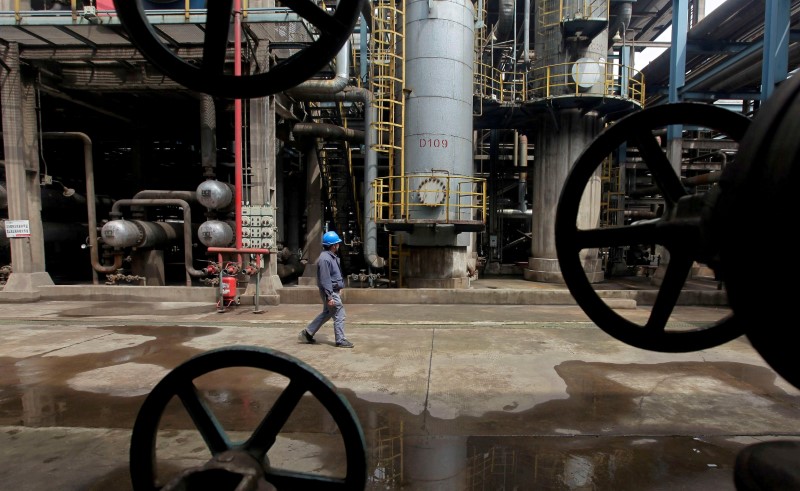By Peter Nurse
Investing.com -- Oil prices climbed higher Thursday, boosted by a sharp drop in U.S. crude stockpiles, implying demand remains robust in the world’s largest consumer.
By 09:20 AM ET (13:20 GMT), U.S. crude futures traded 1.7% higher at $89.52 a barrel, while the Brent contract rose 1.8% to $95.33.
U.S. Gasoline RBOB Futures were up 1.6% at $2.9821 a gallon.
U.S. crude stocks fell by 7.1 million barrels in the week to Aug. 12, data released Wednesday by the Energy Information Administration showed, against expectations for a 275,000-barrel drop.
“The large decline in inventories was due to a substantial increase in crude oil exports over the week,” said analysts at ING, in a note. “Exports grew by 2.89MMbbls/d to hit a record 5MMbbls/d. This makes up for the weak export number last week.”
Also helping sentiment within the crude market was Russia’s warning of a possible catastrophic nuclear incident due to fighting around the Zaporizhzhya power plant in Ukraine.
The claims come as UN Secretary-General Antonio Guterres – who has called for Russian forces to withdraw from around the plant to allow inspections by the International Atomic Energy Agency – is visiting Ukraine.
The closure of Europe’s largest nuclear power plant would leave a number of European countries scrambling for sources of energy as winter approaches, likely increasing the demand for crude.
That said, the crude market is on track for a weekly loss, trading near the lowest level in six months after giving up all of the gains made after Russia’s invasion of Ukraine, as fears over a global recession continue to weigh.
The potential for a resumption of the Iranian nuclear accord, and thus more oil from the Persian Gulf country onto the global market, has added to the concerns.
The Biden administration is currently weighing up Iran’s response to a European Union proposal aimed at reviving the 2015 international nuclear agreement, suggesting a deal appears closer to being signed than at any time in the last year or so.
Goldman Sachs remains skeptical though. The influential investment bank said, in a note earlier in the week, that a deal to revive the nuclear agreement is unlikely to be struck in the near term, and even if a pact were agreed, additional oil wouldn’t flow until next year.
“Our view continues to be that a deal is still unlikely in the short term, with a stalemate mutually beneficial,” analysts at the bank said.
